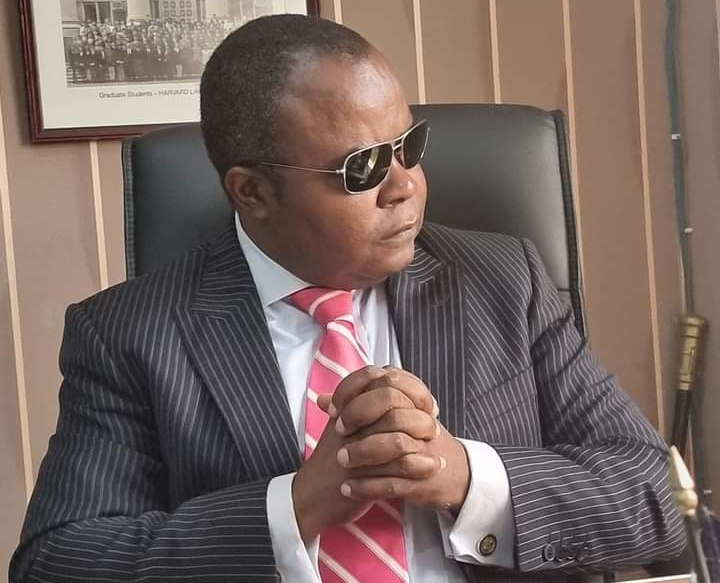Can a good and honest lawyer represent a person he knows is “guilty” of the offense?
4 min read
Emeka Ugwuonye
I chose to teach on this topic because I figured it will joggle your sensibilities. But the answer to the question above is yes. Let me explain why.
First, you will notice I put the word guilty in quotation marks. The reason I did so is because you cannot tell who is guilty until he is found guilty after the trial. Even if you saw him pull the trigger and the person he shot fell down in your presence, all you can tell is that he fired the gun and it killed the person. But you still cannot pronounce him guilty of murder because it takes more than just killing a person to commit a murder.
Second, there is a division of labor in the administration of criminal justice. You have the prosecutor. You have the defense counsel. You have the judge. Each person has a distinct role to play. The judge does not play the role of the prosecutor or defense. Defense does not play the role of prosecutor or the judge. So, to ask a defense counsel to determine that his client is guilty is to ask him to play the role of the judge. If he is a good lawyer, he will refuse.
Third, even when the client has told you he is guilty, he may really not be guilty. He may only be thinking he is guilty, when he is not. How is this possible? Because not everybody knows exactly what constitutes the offence they claim to be guilty of. For instance, many of you reading this think that killing a person and murdering a person is the same thing. A person who killed someone may come to me and tell me that he is guilty of murder. But when I look at the facts of the case, I may find that he only killed somebody but did not quite commit murder. (If you are confused at this point, then you are intelligent. Keep reading).
Also, in administration of criminal justice, there are many rules that must be followed in order to arrive at the point where a person can be found guilty. In one of the cases they use at the law school to teach Nigerian students, we have a classic example of this. One man was accused of stealing. He hired a lawyer. He told his lawyer in the lawyer’s office that he was at the place where the missing thing was kept. But on the day the man was to testify in court, he told the court that he was not in town and was never anywhere near the place the thing was kept. His lawyer interrupted him and said: “But you told me you saw it. You cannot lie to the court”. In the end, the judge found the man guilty because his lawyer told the court “the truth”. The man went on Appeal. The court of appeal reversed the judgement and set the man free because the trial judge relied on the statement of the man’s lawyer. The court of appeal held that any communication between the man and his lawyer was confidential and that the trial judge should not have admitted that statement into evidence. And that for the judge to rely on the statement of the lawyer was in breach of confidential communication between client and his lawyer. So, even if it was true, that kind of truth should not have been admitted into evidence.
Okay, let me give you another illustration. Assuming John who lives in Surulere Lagos killed James on Tuesday, and that Tuesday, he traveled to Benin City with the evening flight. Let us assume he was in Benin City on Wednesday and Thursday. When he returned to Surulere Sunday, he was arrested and charged to court for murder of James. However, the charging document filed in court states that John killed James on Wednesday (instead of Tuesday).
Let us say that John comes to me and tells me exactly what happened. But I looked at the charge sheet and saw Wednesday as the date he allegedly killed James, I will ask John to plead not guilty. Why? Because he did not kill anybody on Wednesday. In fact, I have evidence that he flow Air Peace to Benin on Tuesday and was in Benin on Wednesday. It is perfectly understandable that a man in Benin could not kill a person in Lagos. So, John is not guilty.
When we say that a person is guilty, you need to know the offense he was charged with. And it has to be “guilty as charged”. There is nothing like “generally guilty”. You cannot be generally guilty. You have to be guilty as charged. Here, you charged that this man killed James on Wednesday, and that is not true.
It is not the duty of the defense lawyer to help the prosecutor win his case. The defense lawyer must allow the prosecutor to do his job. And do you know what: Even if the defense lawyer tries to help the prosecutor, he could land himself in trouble and his help will be rejected as you saw in the first example above.
Finally, finally, assuming John was properly charged with killing James on Tuesday and everything the prosecutor said is true, as an honest lawyer, I will not lie. I will not start telling the court that John went to Benin on Monday. What a good lawyer does not do is to deliberately allege facts he knows are false. If I see that the evidence against my client is leading to him being found guilty, I will prepare myself on how to invoke the mercy jurisdiction of the court and get the judge to show mercy and let him go. It is not wrong to ask for mercy and forgiveness. After all, the Lord told us to forgive.
Emeka Ugwuonye is a Harvard trained attorney and founder of Due Process Advocates International



